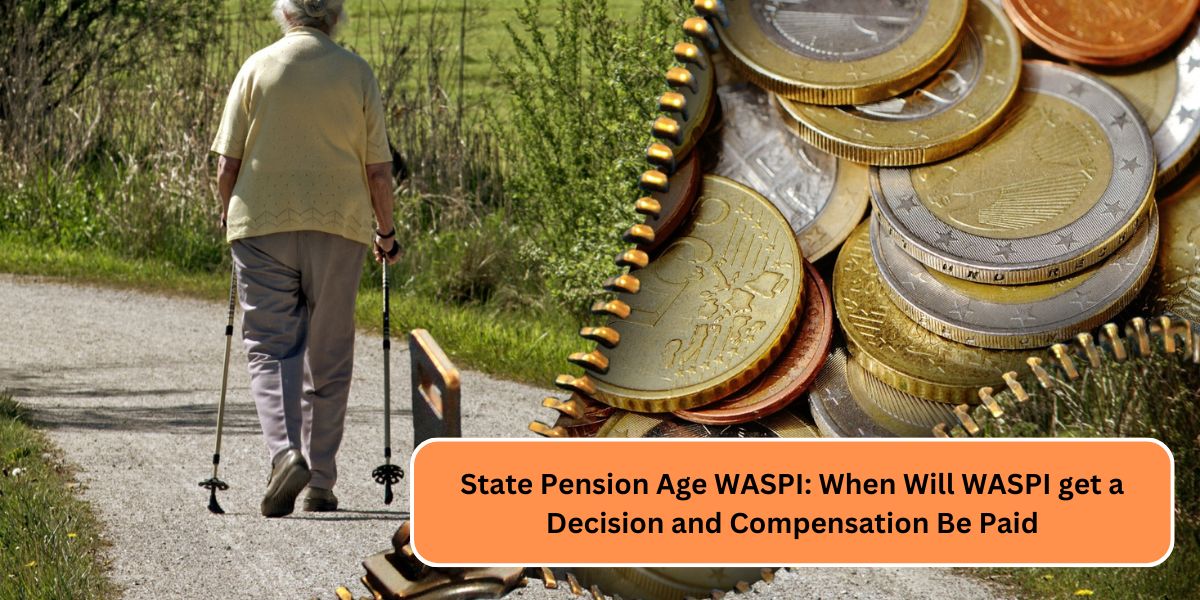Discover crucial details about the State Pension Age WASPI campaign: When Will WASPI Receive a Decision and Compensation? Formed in the UK in 2015, the Women Against State Pension Inequality (WASPI) group contends that the government failed to properly notify women born between 1950 and 1960 regarding changes to the State Pension age. These alterations increased the retirement age for women from 60 to 66. WASPI calls for greater transparency and accountability in future adjustments to the State Pension age. Read on to find out more about the State Pension Age WASPI, including the timeline for compensation and additional pertinent information.
State Pension Age WASPI
The WASPI campaign has highlighted the challenges encountered by women born between 1950 and 1960 in the UK. These women were impacted by changes to the State Pension Age, which increased from 60 to 65 and subsequently to 66 for both men and women.
The State Pension Age WASPI contends that the government’s communication regarding these changes was insufficient. The lack of clear and timely information led to financial hardship for many women, who were forced to work several additional years without adequate preparation. This situation has caused significant emotional and financial strain, with some women having to delay retirement, face a substantial drop in their living standards, or return to work.
When Will State Pension Age WASPI Get a Decision?
The timeline for a decision and the payment of compensation remains uncertain. Here’s what we know:
- Ombudsman’s Report: The PHSO’s report is anticipated to be published soon. This report will be critical in determining the next steps, and its recommendations could prompt the government to address the compensation issue more seriously.
- Parliamentary Considerations: Following the PHSO’s findings, there may be further discussions in Parliament. These discussions could lead to the introduction of legislation or amendments to existing laws to facilitate compensation for the affected women.
- Legal Proceedings: If the Ombudsman’s report does not yield satisfactory results, WASPI may consider further legal action. This could involve taking the government to court or seeking a judicial review to challenge the SPA changes and demand compensation.
When WASPI Compensation Get
The issue surrounding the State Pension Age WASPI remains unsettled. Despite the Department for Work and Pensions (DWP) admitting to the Parliamentary and Health Service Ombudsman’s (PHSO) identification of communication failures, there is still no definite timeline or specified compensation figure.
Some sources suggest that compensation is expected to be addressed before the summer break of 2024. If everything proceeds as anticipated, decisions and the initial disbursements could take place in the latter half of 2024. However, this is contingent on the government’s priorities and any additional discussions required.
The recent general election in the UK may have led to some delays. The newly formed government will likely require time to evaluate the current situation. Nevertheless, the WASPI group remains proactive in organizing their retirement plans, despite the uncertainty surrounding the compensation figures.
State Pension Age WASPI Eligibility
| Topic | Details |
|---|---|
| Impact on Women | Changes in State Pension Age impact women born between 6 April 1950 and 5 April 1960. |
| WASPI Campaign Focus | Focuses on women born between 1950 and 1960. |
| Checking Pension Age | It is advised to check your own pension age regardless of your birth year. |
| Compensation Amount | The exact amount remains undecided. WASPI advocates for compensation between £1,000 to £2,950 per woman. |
| Compensation Delivery | – Lump sum payments – Top-up payments – Early access to the state pension |
All We Know
The WASPI (Women Against State Pension Inequality) campaign has underscored the need for transparent communication about alterations to the state pension system. The government’s forthcoming response to this matter will be scrutinized carefully, as it may influence future adjustments to pension policies.
During the waiting period for a resolution, individuals should regularly visit waspi.co.uk for updates. WASPI, which stands for Women Against State Pension Inequality, is an advocacy group driven by grassroots efforts and operates through donations and membership fees rather than government funding.
The WASPI campaign does not set eligibility criteria or compensation figures. Instead, it serves as an advocacy group representing women impacted by policy changes. The campaign is focused on three primary goals:
- Compensation: They recognize that the government’s ineffective communication has led to financial hardships for numerous women and are calling for compensation to rectify the situation.
- Recognition: They are requesting formal acknowledgment from the government to address the communication issues that have affected their retirement planning.
- Fairness: To prevent a recurrence of such issues, they advocate for a more open and accountable strategy regarding future adjustments to the State Pension Age.
The WASPI campaign group focuses on several key goals, urging the government to address these concerns and offer just compensation.
